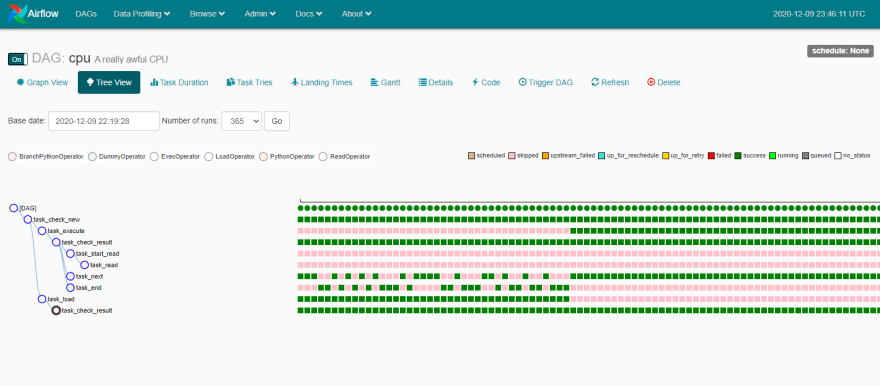I don't know about you, but I struggled to bend C to my will yesterday. Had to do it in Python to stay on top, but now that I've done it in Python, I think I could probably make the C code (that I cleverly deleted all trace of) work. So that's great. Anyways, today is a new day!
The Puzzle
I'm so very happy. This makes up for anything that yesterday did to me. In today’s puzzle, we're debugging machine code! I honestly love all of the puzzles like this. I loved the Intcode challenges from last year, and I'm hoping there are more of these to come. We're writing a sort of machine-code interpreter to parse through and evaluate this code to help a kid play his handheld game on the plane! It's for a good cause!
The Leaderboards
As always, this is the spot where I’ll plug any leaderboard codes shared from the community.
Ryan's Leaderboard: 224198-25048a19
If you want to generate your own leaderboard and signal boost it a little bit, send it to me either in a DEV message or in a comment on one of these posts and I'll add it to the list above.
Yesterday’s Languages
I've got a dope new automated tool to help me fetch and tabulate the number different language submissions each day! It helps the tool if you either write what language you used in your comment or (even better) make your code block language specific with syntax highlighting.
Updated 03:08PM 12/12/2020 PST.
| Language | Count |
|---|---|
| Python | 4 |
| Ruby | 3 |
| Rust | 3 |
| JavaScript | 3 |
| C# | 1 |
| Haskell | 1 |
| TypeScript | 1 |
| COBOL | 1 |
| Fsharp | 1 |
Merry Coding!























Rust! I am doing WAY too much object copying. I think I could get the same results by passing vector of references around. But, wanted to not think too much :)